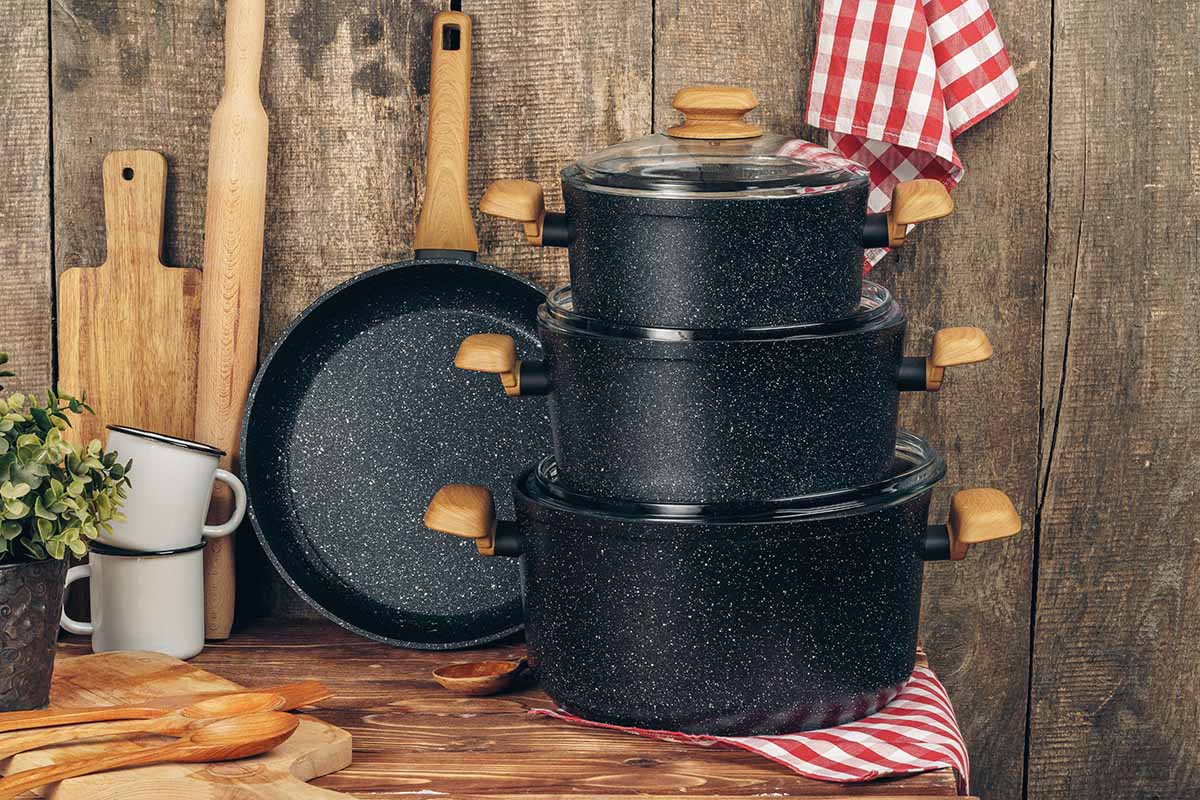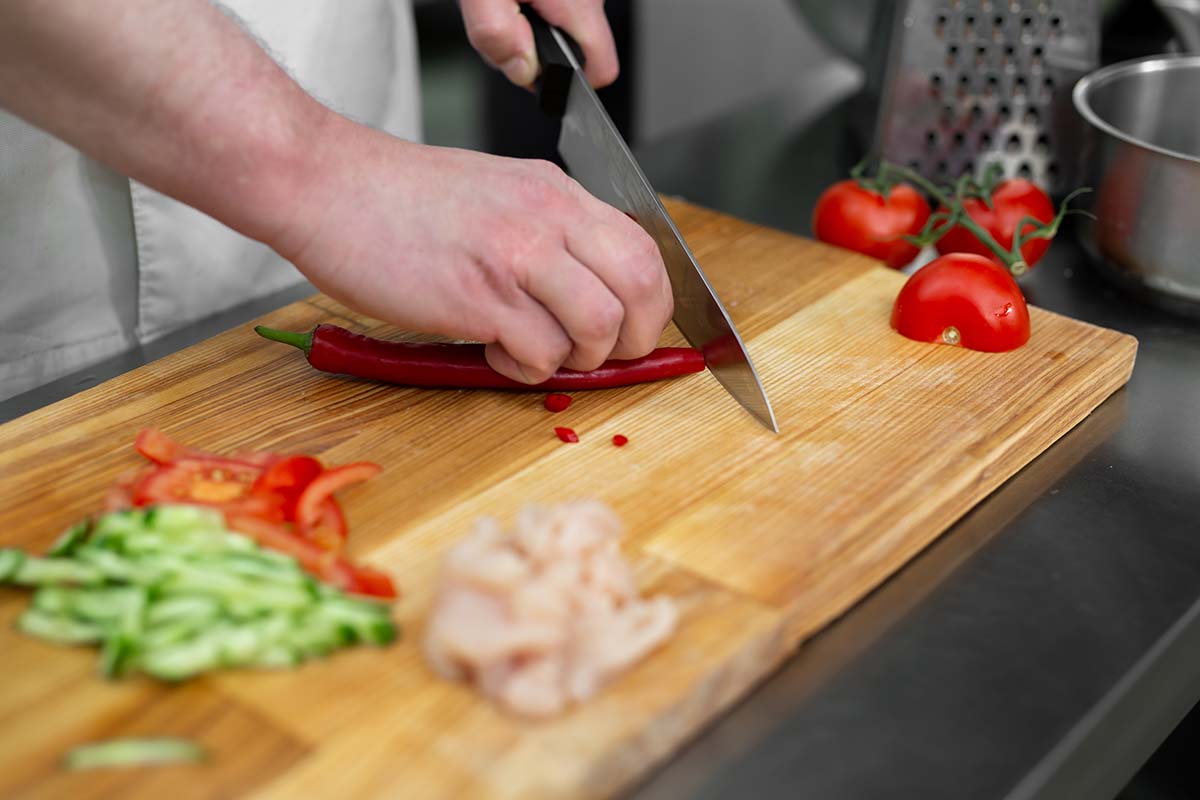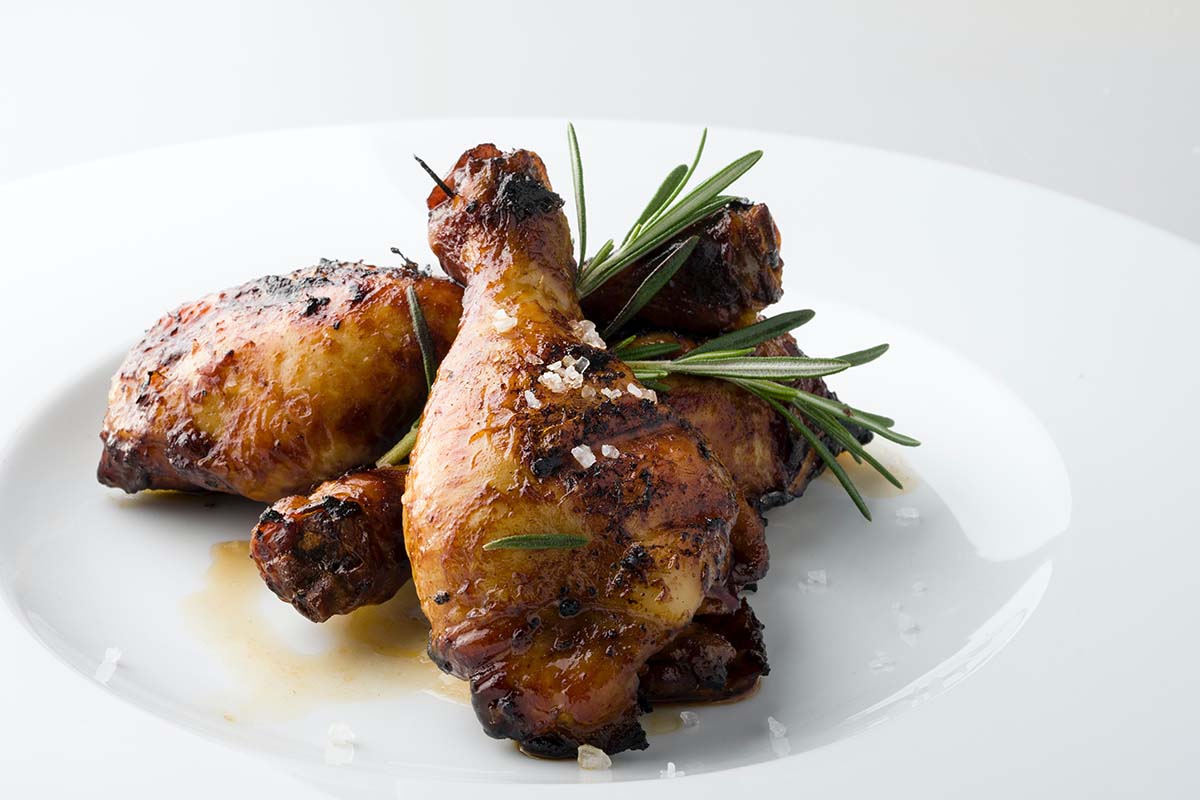How to Clean Ceramic Cookware the Right Way
To ensure the longevity of your ceramic utensils, you should know how to clean them properly. Read on to learn how to clean ceramic cookware here.
Nowadays, it is a lot more common to see ceramic pots and pans in modern kitchens.
It’s no surprise that people value ceramic cookware and utensils for their non-stick properties. They are non-reactive, so you can safely cook acidic foods. Its high heat and scratch resistance makes it durable for lasting use.
But even with its non-stick qualities, ceramic cookware requires proper cleaning. You want to make sure there is no food or build-up on your pan. Burnt food can stain your pan. With the right care, you can extend the lifetime of your ceramic cookware.
This article will give you some tips on how to clean ceramic cookware. Keep your pans looking good as new and keep preparing healthy and delicious meals with our tips below:
Prep Your Pan for First-Time Use
Before cooking with your brand-new pan, remove any stickers and labels. Doing so will prevent them from melting into the surface. After removing all labels, wash your ceramic pan. Use warm and soapy water to remove any dust and debris from the shipping. Let it dry, and you’re ready to use your ceramic pan.
Give your manual a read before throwing it away. Company manuals have maintenance tips for your ceramic pans.
Cleaning ceramic cookware is generally the same, but your manual can provide you with useful information. Always buy from brands you trust. Calphalon Kitchen Essentials offer great ceramic cookware for your kitchen.
Use the Right Utensils
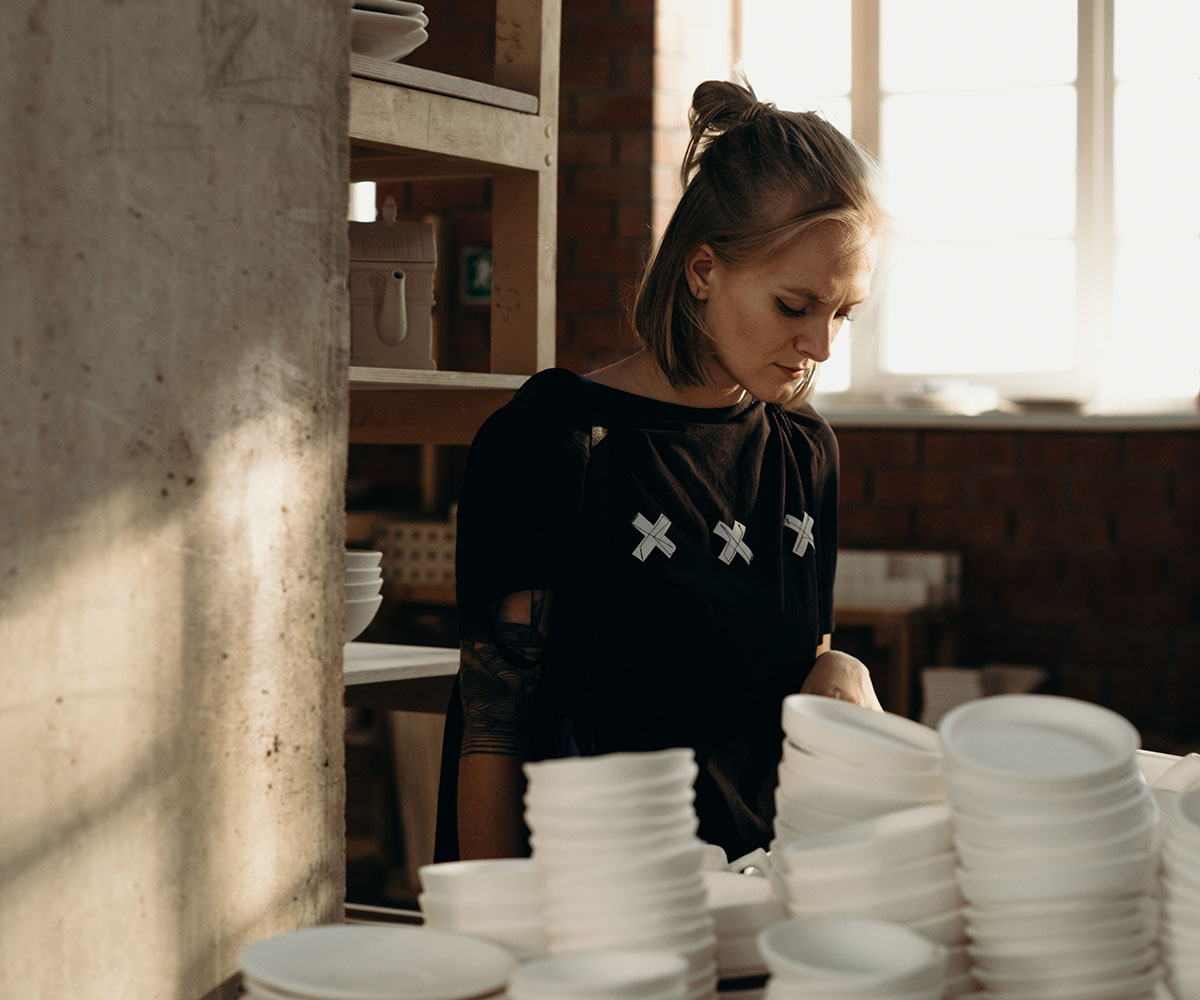
Ceramic cookware is widely known for its durability against scratches. But using the right utensils will allow you to prolong the lifespan of your ceramic cookware.
Wood, nylon, plastic, and silicone utensils are better recommended for cooking with ceramic.
Try to avoid using metallic utensils. Some metallic utensils have sharp edges that can damage your ceramic coating. Never cut food while it is on your pan.
Knives can cause scratching or gouging on your surface. Use a serving platter for cutting your food.
Cook With Oil
A common misconception about cooking with ceramic is that you don’t need to use oil. Using a bit of fat will not only help your food taste better, but it can also help preserve the coating of your ceramic cookware.
Use a bit of oil or butter when cooking with ceramic to prevent food from sticking. Large amounts of oil or butter can lead to unnecessary build-up on your ceramic cookware.
Avoid using cooking sprays. Some cooking sprays contain ingredients that can damage your ceramic coating. The residue that cooking sprays leave can be hard to remove.
Avoid cooking with olive oil. It can leave a carbonized layer and could fight the non-stick properties of your pan.
Use Low to Medium Heat
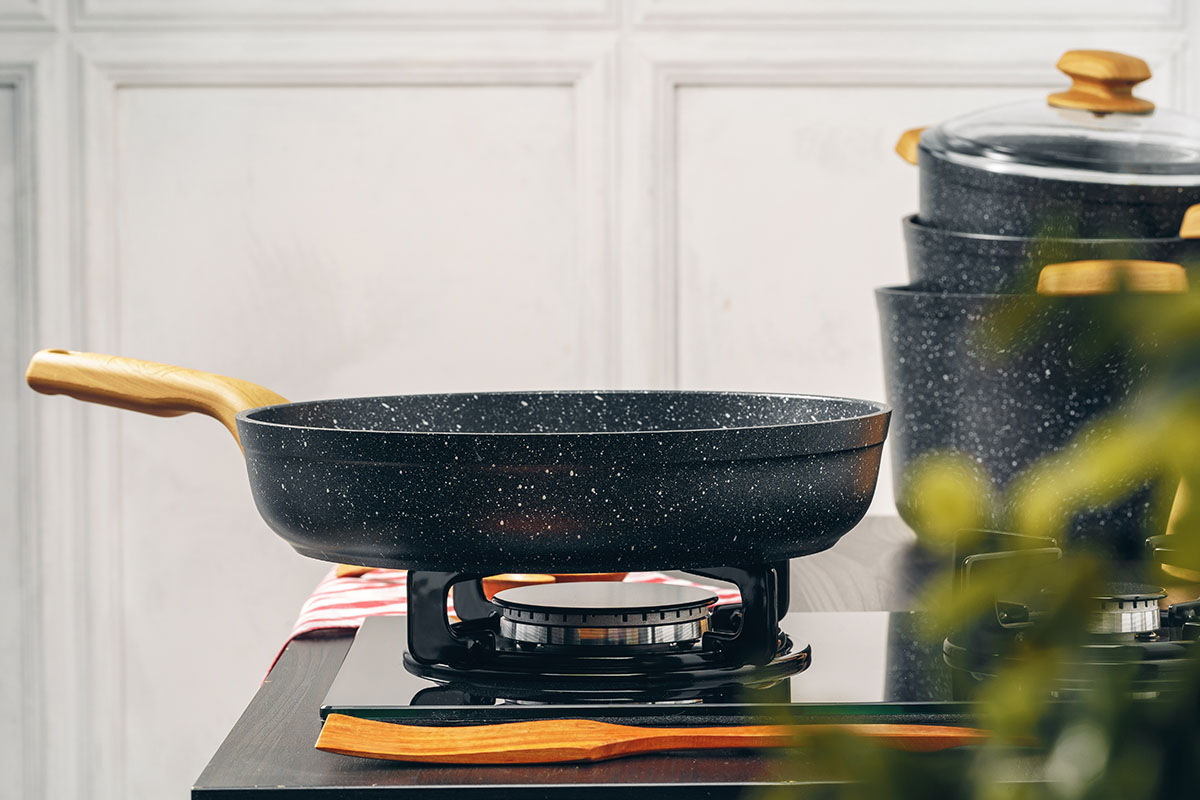
Avoid cooking at high temperatures. Ceramic cookware can’t withstand prolonged high heat. When preheating your pan, use a low fire.
High heat can burn your pan and cause discoloration and damage to the coating. Low and medium heat is better to avoid food from sticking.
Cleaning Ceramic Cookware By Hand
Always hand-wash your ceramic pans. The smooth surface allows for easier cleaning. Ceramic cookware is generally safe for dishwashers, but hand washing prolongs its lifespan.
Allow your pan to cool completely before washing it. Drastic temperature changes can damage your ceramic cookware.
It will affect the non-stick coating, which will reduce its cooking abilities.
Be mindful of your cleaning utensils. Try to avoid using abrasive sponges and scrubbing pads. These can cause scratches and damage your ceramic coating.
Use a soft sponge, cloth, or a plastic scrub to wash your pan—clean ceramic cookware with warm and soapy water. Avoid using abrasive cleaners like lemon or vinegar.
These include high acidic content that can cause the coating to erode quickly. Here’s how to clean ceramic cookware in case of burnt food residue.
- Allow your ceramic cookware to cool completely before washing.
- Soak your pan in warm soapy water. Leave it for 30 minutes. Soaking your pan will help loosen food remnants.
- Use baking soda and warm water to remove stubborn food residue.
- Scrub your pan in light, circular motions until the stain lifts.
- Rinse well with warm water, and check your pan for any missed residue before putting it away.
You can follow the same steps if you want to deep clean your ceramic cookware. Baking soda is effective, and it will not damage your ceramics.
Storing Your Ceramic Cookware
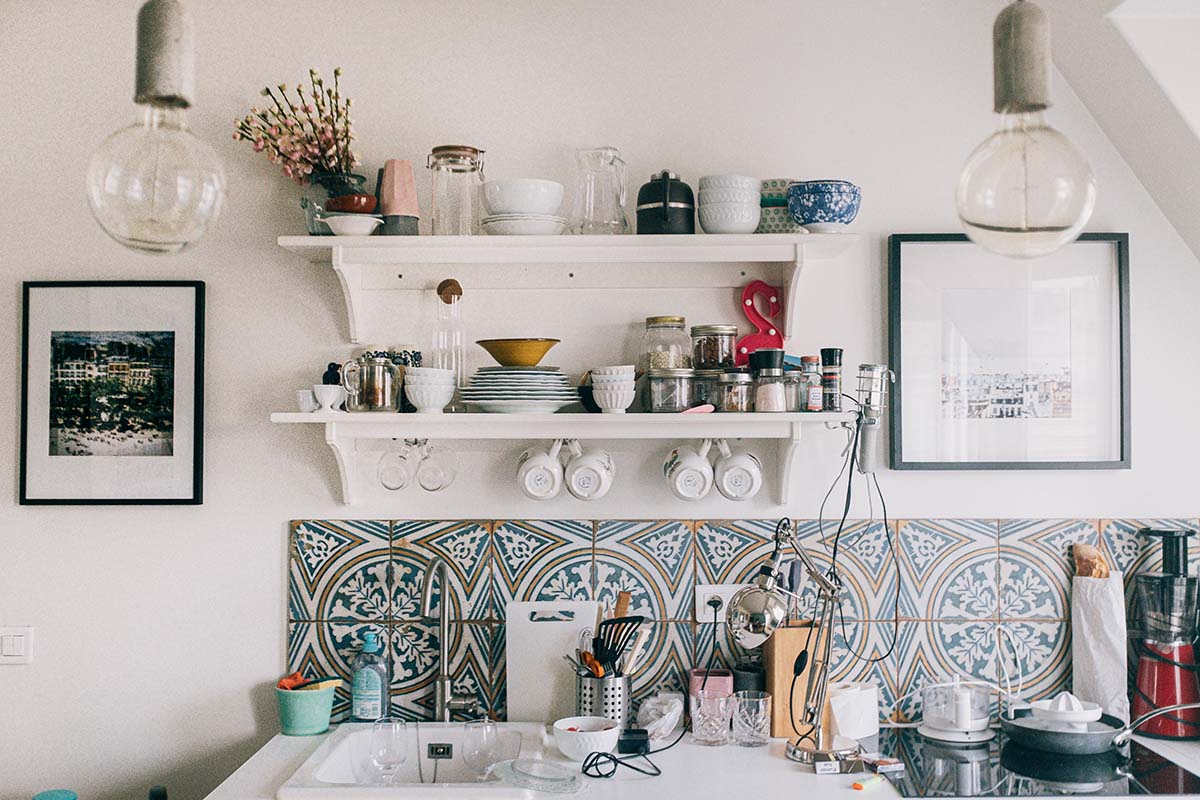
Make sure your pans are properly cleaned before storage. Ceramic cookware indeed has a scratch-resistant quality. But there’s no harm in taking an extra precaution for your kitchenware. Avoid stacking your ceramic pans on top of each other. Stacking your pans may scratch the interior or exterior of your pans. But sometimes, you can’t avoid stacking your pans.
If you have limited kitchen space, add a protective layer in between your pans. Use a napkin, cloth, or kitchen towel to prevent scratching. If you can, invest in padded pan protectors to keep your pans scratch-free.
When To Throw Away Ceramic Cookware
The average lifespan of ceramic cookware is around five years. Even with proper maintenance, ceramic cookware will deteriorate over time. If you have a warped pan, it may be time to look for a replacement.
It’s not dangerous, but heat distribution may be uneven.
The discoloration isn’t always bad. Light discoloration comes from food build-up. But dark discoloration is a telltale sign that your non-stick coating wore off or damaged.
The final sign that it’s time to throw away your pan is that it has significant scratches. Residue can build up in the crevices. Scratches could mean that the surface has been badly damaged.
Master How to Clean Ceramic Cookware Today
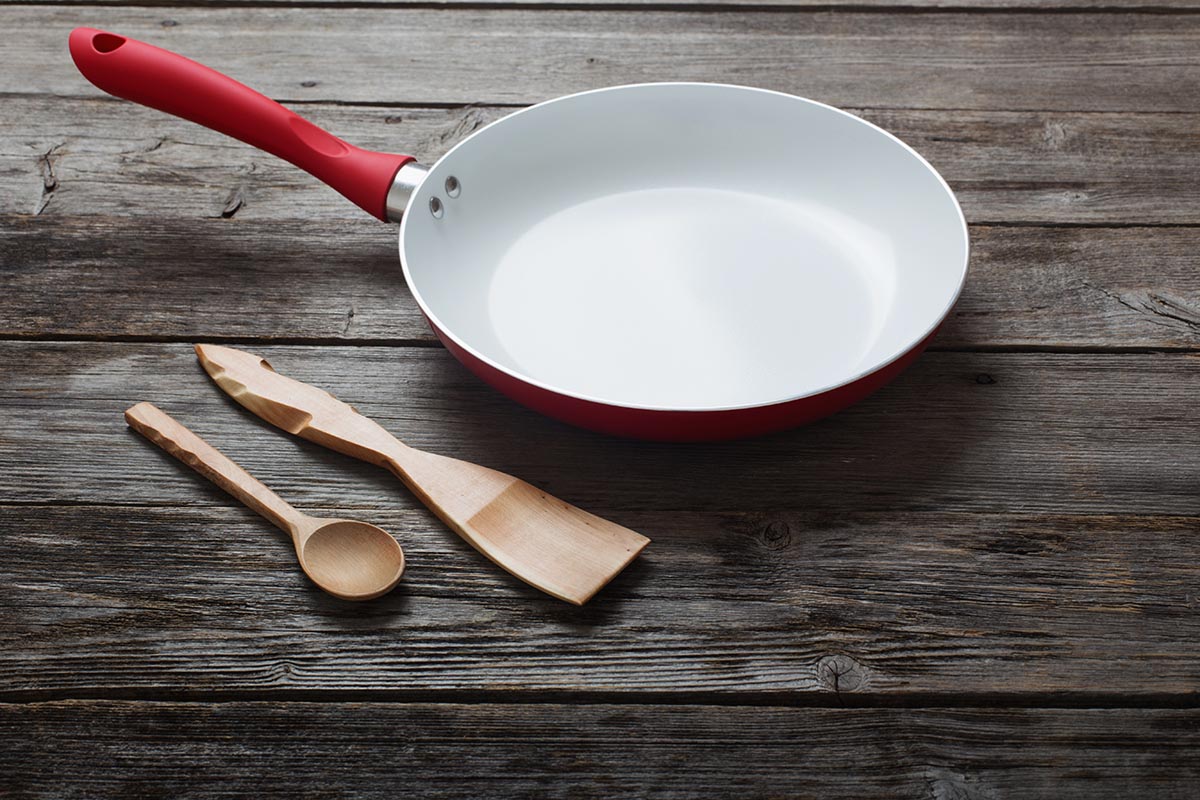
Now you know how to clean ceramic cookware. Ceramic cookware became popular because of its non-stick quality. But don’t let this fool you! Any kitchenware requires extensive care and maintenance.
A little work goes a long way if you want to maximize the lifetime of your cookware.
Remember to avoid scratching your pan and cooking at high heat temperatures. If you found this article helpful, consider going over more of our posts!
We have more useful tips and tricks for you to discover. Check us out for more great content.
